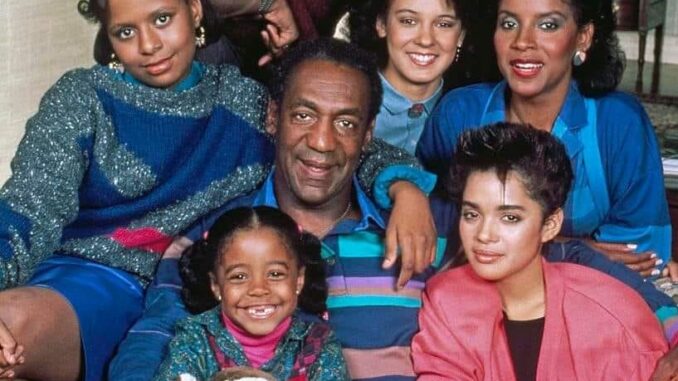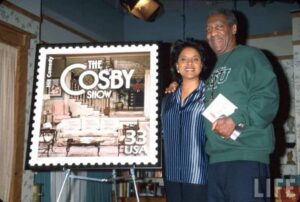
When The Cosby Show premiered in 1984, it quickly captured the hearts of millions, becoming one of the most beloved sitcoms of all time. On the surface, it was just another family comedy. But beneath the humor and hijinks, the show became a cultural milestone, reshaping how African-American families were portrayed on television. It wasn’t just groundbreaking—it was a revolution in representation.
At a time when TV often relegated Black characters to supporting roles or stereotypes, The Cosby Show showcased an African-American family that was successful, well-educated, and aspirational. Cliff Huxtable (played by Bill Cosby) wasn’t just a father figure—he was a loving, wise, and sometimes goofy doctor. Clair Huxtable (Phylicia Rashad) was a powerful, intelligent lawyer who balanced family life with career success. Together, they represented a vision of Black excellence that was rarely seen on screen before.
But beyond its portrayal of an aspirational family, The Cosby Show took on issues of race, class, and identity with depth and sensitivity. It addressed everything from academic pressure to teen rebellion, all while making us laugh along the way. Episodes like Theo’s struggle with learning disabilities or Denise’s exploration of life at college tackled complex subjects, but they did so with empathy and humor, making them accessible to audiences of all backgrounds.

The show’s influence extended far beyond its airwaves. It created a platform for other Black-centered shows that followed, paving the way for hits like A Different World, Family Matters, and Living Single. It also helped redefine what it meant to be an African-American success story on TV, presenting an alternative to the prevailing stereotypes of the time.
And let’s not forget the unforgettable performances. Bill Cosby’s charm and comedic timing were legendary, but it was the whole ensemble cast—the dynamic between the Huxtable children, the supportive family friends, and the wisdom of the parents—that made The Cosby Show so universally beloved. From Rudy’s infectious laughter to Theo’s awkward adolescence, every character brought something special to the table.
While the controversy surrounding Bill Cosby’s later actions has understandably complicated our relationship with the show, it’s important to remember that The Cosby Show was a product of its time—a beacon of hope and representation for millions of viewers. It introduced us to a world where Black families were shown not just surviving, but thriving. It offered us a window into lives that were often overlooked or misunderstood in mainstream media.
Even now, The Cosby Show stands as a powerful testament to the ability of television to shape culture and foster empathy. Its message of family, education, and love transcends the darker chapters in its creator’s personal life. What The Cosby Show gave to us was not just entertainment—it was a vision of a world where Black families could be seen, heard, and celebrated. That legacy, flawed as it may be, is something that we shouldn’t forget.
So, even though the shadow of controversy hangs over its creator, we shouldn’t feel ashamed for loving The Cosby Show. It gave us something valuable—laughter, life lessons, and the reminder that representation matters.